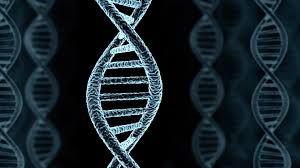Genetic determinism is a concept that posits genetic factors predominantly shape human behavior, traits, and predispositions. This notion has generated a plethora of discussions within various fields, including psychology, biology, sociology, and ethics. The allure of genetic determinism lies in its simplicity—providing a seemingly straightforward explanation for the complexity of human life. However, the depth of this theory raises compelling questions about free will, morality, and social responsibility.
At its core, genetic determinism suggests that our genetic makeup is the primary determinant of our identity. This belief was largely popularized in the 20th century alongside advancements in genetics, particularly the discovery of DNA’s structure and its subsequent role in heredity. When genes are considered the blueprint of life, it becomes tempting to infer that every aspect of our existence is preordained, thus leading to the idea that individual characteristics—ranging from physical attributes to psychological traits—are etched in our DNA.
However, this superficial reading masks the complexity that underlies genetic influence. The field of epigenetics has emerged to challenge the dogmatic views surrounding genetic determinism. Epigenetics explores how environmental factors can modify gene expression, thereby illuminating the intricate interplay between our genetic foundations and external stimuli. Factors such as nutrition, stress, and social interactions can sculpt our genetic predispositions, manifesting in diverse outcomes in behavior and health. This paradigm shift suggests that while genes may predispose individuals to certain characteristics, they do not unilaterally dictate them.
The implications of genetic determinism extend beyond scientific discourse; they permeate societal perceptions of meritocracy, personal responsibility, and moral judgment. In cultures that ascribe to genetic determinism, traits associated with success or failure—such as intelligence, propensity for addiction, or even criminal behavior—can be attributed solely to genetics, leading to an unflattering stereotype of the “genetically inferior.” Such deterministic views can foster discrimination, shaping public policy and reinforcing social hierarchies.
Fascination with genetic determinism can be attributed to a profound psychological tendency: the human desire to understand oneself and others as stable, predictable entities. This quest for predictability can manifest in various forms, including the allure of personality tests and genetic ancestry kits. These tools, while entertaining, frequently oversimplify the human experience—reducing individuals to mere genetic codes devoid of the rich tapestry of experiences, choices, and interactions that constitute identity.
Moreover, the fascination with genetic determinism raises ethical concerns. If behavior can be attributed to genes, how do we account for individual accountability? The notion that certain individuals are genetically predisposed to criminality, for example, can be immensely problematic. It perpetuates a dangerous narrative that absolves individuals of responsibility for their actions, merely attributing them to “bad genes.” Such deterministic views may hinder societal efforts to rehabilitate offenders or support individuals struggling with addiction, thus negating the importance of nurturing environments, education, and social support systems.
Furthermore, genetic determinism often leads to a reductionist approach in areas such as healthcare and psychology. Medical professionals may prioritize genetic testing over comprehensive evaluations, neglecting the multifactorial nature of diseases and conditions. This emphasis can lead to misunderstandings and misdiagnoses, ultimately compromising the quality of care provided to individuals. Acknowledging the complexity of human biology, including the interplay of genes and environment, is essential for fostering a holistic approach to health and well-being.
The perpetuation of genetic determinism also intersects with societal issues such as stigma and inequality. For instance, individuals diagnosed with mental health disorders may find themselves facing prejudices that arise from a deterministic lens. By framing mental illness as a mere genetic malfunction, society risks overlooking the societal, economic, and environmental factors that contribute to mental health challenges. Consequently, the complexity of human suffering is rendered invisible, and opportunities for meaningful intervention are squandered.
Addressing the implications of genetic determinism necessitates a multidimensional approach. Education plays a critical role in transcending simplistic narratives. Public discourse must incorporate findings from genetics, psychology, and the social sciences to foster a nuanced understanding of human behavior. By elevating awareness of genetic predispositions while simultaneously acknowledging the role of environment and experience, society can cultivate a more compassionate and equitable framework for addressing individual differences.
In conclusion, while genetic determinism offers a tantalizing explanation for the breadth of human experience, it is imperative to recognize its limitations. The intersection of biology, environment, and personal agency composes the intricate mosaic of human identity. Rather than allowing genetic determinism to dictate our perceptions and policies, a collaborative exploration of genetics and environmental influences can illuminate the multitude of factors that shape our lives. Such an integrative approach may ultimately lead to more informed, humane responses to individual behavior and societal issues, reinforcing the understanding that human potential is far more than the sum of its genes.
